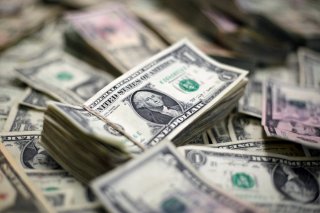Why Biden Isn’t Sure Another Stimulus Payment Is Good for America
Democrats in the House and Senate have preceded Biden in calling for more consistent stimulus measures.
Here's What You Need to Remember: It is also unclear if a fourth stimulus is actually needed. While the economic situation remains uncertain, high unemployment persists, and many families remain poorer than they were before the pandemic, COVID-19 is waning in the United States; nearly half the population have received at least one shot, and one-third have been fully vaccinated.
When President Biden gave his hundredth-day address to a joint session of Congress, he touted his widely-circulated American Jobs Plan and American Families Plan, two $2 trillion measures designed to aid the nation’s COVID-19 recovery and help struggling families through tax credits and expanded public goods. Although the plans have yet to pass Congress, and already face Republican opposition, they are widely popular in the United States, and seem likely to pass in some modified form in the months ahead.
One widely-noted omission in Biden’s speech, however, was the question of further stimulus payments. Although both measures – particularly the American Families Plan – contain cash savings for many Americans, neither plan calls for direct cash relief outright, as a stimulus check provides.
Biden did not deny that further payments would be made, but he also did not raise the issue. White House Press Secretary Jen Psaki later addressed the question by commenting, “We’ll see what members of Congress propose” – suggesting that Biden was not interested in leading on the issue.
Democrats in the House and Senate have preceded Biden in calling for more consistent stimulus measures. Dozens of House and Senate Democrats have supported a proposal advanced by Humanity Forward – an organization founded by 2020 presidential candidate Andrew Yang to advance universal basic income (UBI), another form of direct cash relief – to send all Americans monthly checks of $2000 until the end of the pandemic.
Still, there are reasons to be skeptical about the possibility of a fourth stimulus check. One of the largest is the opposition from fiscally conservative members of Congress, including nearly all Republicans and even some Democrats such as Sen. Joe Manchin (D-WV).
Fiscal conservatives have criticized stimulus checks on the basis of their high cost, and, with the Senate evenly split, Republicans could filibuster any legislation proposing a fourth stimulus check, even if passed by the House. To pass such a stimulus measure without risking a filibuster, the pro-stimulus Democratic coalition would need to find at least ten Republican senators willing to side with them on the stimulus issue. In today’s polarized Washington, this is unlikely to happen.
It is also unclear if a fourth stimulus is actually needed. While the economic situation remains uncertain, high unemployment persists, and many families remain poorer than they were before the pandemic, COVID-19 is waning in the United States; nearly half the population have received at least one shot, and one-third have been fully vaccinated. The CDC’s recent guidance that fully vaccinated adults no longer needed to wear masks is a positive sign in this regard.
Lastly, the plans contained within Biden’s existing bills effectively amount a further stimulus check’s worth of savings for many Americans – especially working families with young children, the major beneficiaries of Biden’s proposals so far.
Trevor Filseth is a news reporter and writer for the National Interest. This article first appeared earlier this year.
Image: Reuters.

